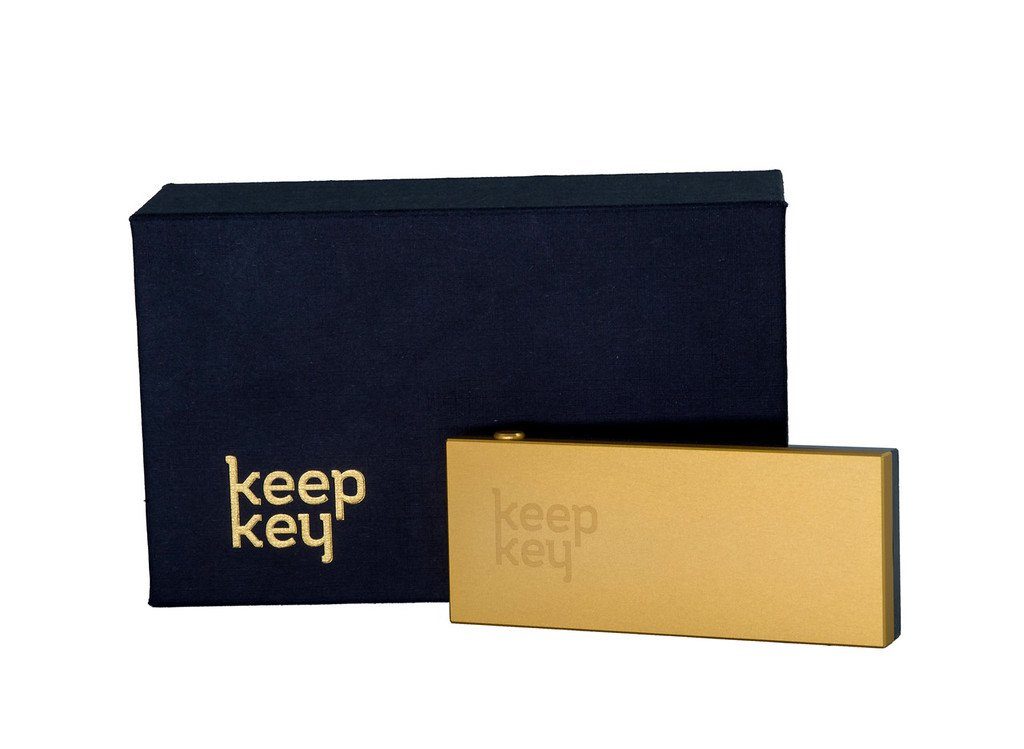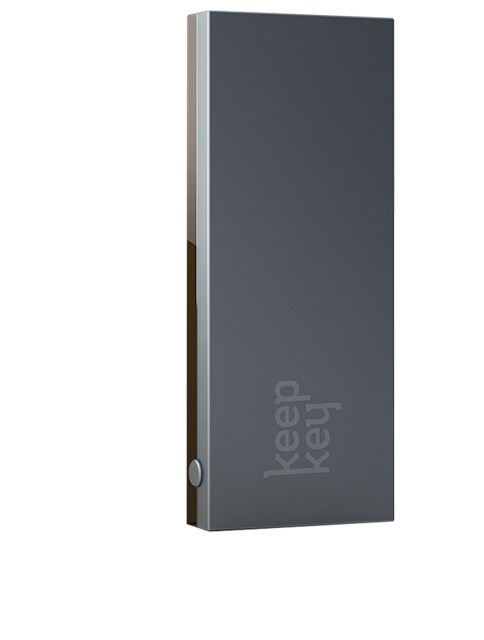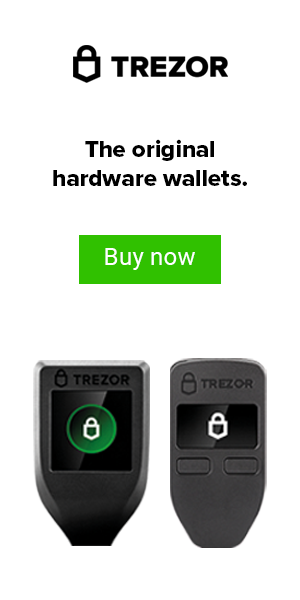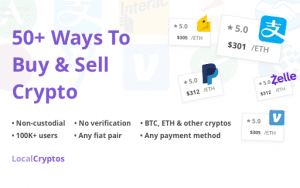QuadrigaCX fails, the troubled Canadian cryptocurrency exchange, has failed to locate millions in customers’ missing cryptocurrency assets since the company’s owner died suddenly in December of 2018. On Monday, Nova Scotia Supreme Court Judge Michael Wood ruled that Quadriga Fintech Solutions Corp, the holding company, can begin bankruptcy proceedings.
Approximately 115,000 customers are owed $195 million USD in cash and cryptocurrencies, including Bitcoin and Ethereum, following the death of Quadriga’s founder Gerald Cotten. The exchange says Cotton did not reveal to anyone in his organization the private keys that access the cryptocurrencies on his private wallet. To those who did not know the details of the founders death, he died in India following complications from Crohn’s disease.


Quadriga’s court-appointed auditor Ernst & Young issued an April 1 report, asserting that creditors may benefit from the bankruptcy proceedings with the potential sale of the company’s assets, including but not limited to Quadriga’s operating platform.
In March, Michael Wood granted the Canadian crypto exchange a 45-day extension to find more than $100 million in lost Bitcoin, Ethereum, Bitcoin Cash, Bitcoin SV and Bitcoin Gold.
The court also approved a freeze on accounts held by Cotten’s widow, Jennifer Robertson, and the Cotten estate, including Robertson’s trusts and businesses.
Robertson says that her husband’s death was “sudden and unexpected”, refuting conspiracy theories that Cotten is still alive and that his death was a ruse to escape financial troubles.


QuadrigaCX was believed to be Canada’s largest cryptocurrency exchange, but following the death of Cotten, Ernst & Young says the company’s cold storage wallets are empty.
The next hearing is scheduled for April 18 to address issues involving credit protection and third-party payments processors.
This just goes to show that leaving your private keys on an exchange is very risky business. Do yourself a favor and store them on a trusted hardware wallet that is under YOUR control. Click here to see the latest offers directly from Ledger for an entry level hardware wallet.
You Might also like
-
BREAKING: Bitcoin Drops Below $5,200 As Bitfinex Tether (USDT) Drama Continues
Breaking: Bitcoin drops below $5,00 as Bitfinex Tether (USDT) drama continues. Holy Smokes. What a whirlwind of a few hours it’s been for the cryptocurrency market. As Ethereum World News reported, iFinex, the operator of both Bitfinex Tether Limited (the firm behind USDT), had come under legal pressure from a key U.S. legal entity. For those who missed the memo, here’s a recap:


A document unveiled by the New York Attorney General’s (NYAG) office on Thursday has revealed that iFinex, the company behind both Tether (USDT) and Bitcoin exchange Bitfinex, is being sued. Per a lawsuit issued by official Letitia James, iFinex Inc, which is the company behind the two aforementioned crypto startups, promoted the “issuance, distribution, exchange, advertisement, negotiation, purchase, investment advice, or sale of securities” in New York State, which is illegal without the proper licensing and documentation. The suit has also revealed that Bitfinex purportedly sent $850 million to a Panama-based company, failed to secure the funds later, and went on to raid almost $1 billion of Tether’s cash reserves to satisfy it’s customers.
As a result of this news, BTC fell immediately (and a lot of altcoins with it). Within 30 minutes of the news’ publishing, BTC dropped from $5,550 on Coinbase to a low of $4,950 — a collapse of just over 10% — as Crypto Twitter spread this harrowing pieces of news within minutes. Altcoins across the board followed suit, with USDT falling to $0.98 on a number of exchanges. But, now, some are coming to the conclusion that this isn’t the end of cryptocurrency per se, leading to a recovery in the Bitcoin price to $5,200.
BITFINEX RESPONDS, BUT TRADERS FLEE IN PANIC REGARDLESS


About an hour after this news hit the Wall Street Journal and other outlets, a Bitfinex staffer going by “Garbis” released a statement on the company’s official Reddit forum. The employee explained that Bitfinex’s “team is reviewing the documentation,” and a statement will be released on the matter in the coming hours. In spite of this response, which was deemed lackluster and meaningless by most, users are revealing that they are withdrawing all their capital from the (not so) popular crypto platform.
Eduardo, a Venezuelan Bitcoin enthusiast that works for Purse.io, revealed that while he isn’t selling his BTC, he is withdrawing “what little” he had off the platform. Many others in the community made similar remarks, posting images of their withdrawal requests — balances and addresses redacted of course — to show that they are now skeptical of Bitfinex’s dealings. It is unclear whether or not the exchange will be able to keep up with these withdrawal requests. If this continues, we may see a massive exodus.


BOTTOMLINE:
This just goes to show that it’s only a matter of “when”, not “if” exchanges will reveal some mishaps and people start to panic. You do not have these issues when you have a hardware wallet, and you can even keep your USDT on a KeepKey device, which I’ve been testing in their new unified beta platform. I strongly recommend visiting our “SHOP” page at the top to get one now directly from these companies. Just remember as Andreas Antonopolous said: “Not your keys, not your bitcoin”.
What do you think? Do you think Bitfinex has made a big mistake like this for the last time? Please let me know in the comments!
Cheers,
The Crypto Renegade
NOTE: This post may contain affiliate links. This adds no cost to you but it helps me focus on giving as much value as possible in every single post by being compensated for recommending products that help people succeed.
Post Views: 0 -
What Is The Best Cryptocurrency To Invest In Right Now? (2020)
What is the best cryptocurrency to invest in right now? Yes, this may seem like a loaded question, but it ultimately comes down to preference. I have long been a believer that there will at some point come a cryptocurrency that provides more value that the current king itself (Bitcoin), but I still feel as though that day is still far off in the distance. Bitcoin has been the staple and foundation that started this revolution over a decade ago with the one crazy idea that the world could have a peer-to-peer electronic cash system that was governed by the people, and not an “authority”.
So far, the network effect is the strongest factor that keeps bitcoin in the minds of most people that are aware of it, because it’s not just a coin, its also a technology; a protocol. Decentralization and a VERY large distributed network gives bitcoin a superior power than all other altcoins listed on CoinMarketCap.com. However, that is not to say that other altcoins offer no value, in fact, a good few of them are innovating a way to new technologies and governance standards that let it stand apart from the rest. I will name a two of them that I have invested in below that are not Bitcoin, because they offer a unique selling proposition (USP).
ZCASH


Zcash has a proprietary privacy protocol attached to it. This is extremely attractive, as one of the key selling points of cryptocurrency to begin with was anonymous, uncensorable transactions. This is money as it was intended to be. I should be able to transact with anyone in the world, and not only NOT have it tracked, but keep it between me and the other consenting party. They use a method called zk-SNARKs.
This is an acronym for “Zero-Knowledge Succinct Non-Interactive Argument Of Knowledge”. What does this actually mean? It essentially means that “Zero-Knowledge” proofs allow one party (prover) to prove to another (verifier) that a statement is true. It allows you to verify a transaction is relevant and true without knowing its origin.
Some people view this as potentially scary, because it allows money launderers or criminals to transact in a more private way. Well, my theory is this, criminals will always find a way to do what they want and transact privately. Valuable tools should not be banned or discredited because there is a potentially negative outcome.
There is an equally positive outcome. Privacy is an unalienable right to all humans and we should all expect it and understand our rights to it. To me, that makes this coin very very powerful and very much worth exploring, especially as it is considered an “Original”. Some similar example coins that came after are Monero and Zcoin.
TEZOS
In my opinion, Tezos is the new and improved evolution of Ethereum. It is a new platform for decentralized applications (dApps) and smart contracts. Here are a few key points that make it different:


1.) On-Chain Governance – The Tezos protocol offers a formal process through which stakeholders can efficiently govern the protocol and implement future innovations. This is democracy at it’s finest. It also helps avoid controversial “Hard Forks” as we’ve seen in the past with Bitcoin (BTC) to Bitcoin Cash (BCH) and then Bitcoin Cash (BCH) into Bitcoin SV (BSV). This has a detrimental effect on the network and causes a lot of confusion, contention, and tribalism.
2.) Security – This blockchain was designed to facilitate formal verification, which helps secure smart contracts and avoid buggy code. This has been a HUGE problem with Ethereum over the years as noted in the infamous “DAO Hack“, which again proved that their protocol was not immutable and caused yet another hard fork that brought forth Ethereum Classic into existence.
3.) Liquid Proof of Stake – This is a unique consensus proof-of-stake algorithm which gives every stakeholder the opportunity to participate in the validation of transactions on the network and be rewarded for doing so. Whether you are big or small, you have a vote. This is unlike the current mining pools that we have in place where the person with the most hashing power and hardware wins the block reward, and essentially dictate the rules of the network.
I tend to think that the tech behind each blockchain is what brings it’s value. Whether or not the price is currently up or down on these coins, I believe as the masses start to see the value these innovators bring to the table, the money will follow.
If you don’t recall, it took over a year of price discovery before Ethereum finally found it’s place in the market. All this to summarize that I am very interested to see where these both end up in terms of price and user adoption over the course of this year.
CONCLUSION


So what is the best cryptocurrency to invest in right now? My final thought comes down to diversification. No matter what cryptocurrency you own or believe in, it is always a good idea to NOT put all of your eggs in one basket. Diversification allows you to spread out your wealth and provide you a bit more piece of mind and stability as we all partake in our own personal crypto journey.
If you are new to this space and are unsure what to invest in, there is an up-and-coming site that allows you to follow a strong community of cryptocurrency investors and see what allocations are in their portfolio to give you a baseline. This is a desktop and mobile app known as “eToro“. It also provides you some guides and information on each coin so you can learn what the differences of each coin are and what the full scope of their previous price, current price, and the expected future price over time. I will leave the link here for anyone that’s interested.
Please sound off below! What do you think the best cryptocurrency to invest in at this point in the game? Do you think my top two altcoin picks are unfounded? Let me know in the comments.
NOTE: This post may contain affiliate links. This adds no cost to you but it helps me focus on giving as much value as possible in every single post by being compensated for recommending products that help people succeed.
Post Views: 0 -
Why Credit Card Companies Should Allow Customers To Make Payments With Cryptocurrency
In this article, I will dive into why credit card companies should allow customers to make payments with cryptocurrency! As someone who gets paid primarily in cryptocurrency, I have looked around for a solution or a service that allows me to payoff or pay down any debts (mainly credit cards) directly with cryptocurrency. Unfortunately, after months or research, there does not appear to be a way to do this directly in the United States. Interestingly enough in my journey for looking for a solution, I was able to come across an article that an Australian start up company called Living Room Of Satoshi was doing this (successfully, I might add) in providing a way for users to pay for every day bills using bitcoin. This includes: Car Registration, Electricity Bills, Cell Phone Bills, Bank Fees, and even (yes, you guessed it) Credit Cards. It’s been reported that the number one bill paid by consumers is credit card debt, according to CreditCards.com.
THE 3 CREDIT CARD BEHEMOTHS


However, there is no direct solution in today’s world to make payments directly with Visa, Mastercard, or American Express with our crypto assets to help pay down our debt. Any one of these companies would have a MASSIVE edge over any other bank or credit card company that implements this feature first, because there are millions of active cryptocurrency users who would use this feature in a heartbeat. We need to take a page out of Australia’s book and create solutions that will allow us to either have these corporate giants begin accepting this directly, or create a bridge to do so. There are a few work-around options you can use to leverage your crypto holdings and use the collateral to get a crypto-backed loan with very low and reasonable interest rates to help you pay down debt. The beauty in doing this, is you don’t have to spend your crypto to use this option, you just send it to a protected account with them until your loan is paid back. It is also backed by the FDIC (if that gives you any confidence). For some people, that last tidbit gives them peace of mind knowing that this company is not going to disappear and simply lose all your crypto funds if they go under. I have done business with them recently in earning interest for some of my holdings and I can attest to their integrity and have had nothing but a positive experience using Blockfi.
CRYPTO-BACKED LOAN SOLUTION


Let’s get back to the 3 credit giants for a minute. The average interest rate the average U.S. consumer is paying with “good” credit is still over 20%. That is highway robbery, but what other options do consumers have when the inflation and cost of living is outpacing the paying wage in America? It almost seems like a perfectly formulated trap by these big banks to rob the american people of their freedom and to impose financial slavery for the rest of their working lives. It’s madness, however, it’s even harder for people who get paid in cryptocurrency to pay these bills, because we have to use a 3rd party service (like Coinbase) in order to pay a fee to convert our crypto into fiat, and then pay additional fees to pay our credit card on top of our interest rates. This seems like a good plan when looking from the vantage point of these credit card companies, because that means we will be paying interest even longer. Wrong! The default rates on credit cards are on the rise, because it’s becoming too cumbersome and people are drowning in debt. A growing number of folks figure it’s worth it to take a hit to their credit score or even delay paying this by having it go to collections, just so they can keep up on their required living expenses like food and shelter.
There is another option that was found for use in Canada to pay your credit card bills, but still, you have to pay extra fees to do this. For some, it may be worth it and it can help you reduce the amount of interest to pay to the banks. I still think the credit card companies need to accept this directly as there is a need in the marketplace and it will ultimately help them receive more revenue in the long term as bitcoin is a deflationary currency. The banks have never needed to make any innovation into their services or processes because they have a monopoly, and therefore have no need to compete. This is just another reason why bitcoin is going to be the currency of the future and will soon become adopted mainstream as it’s very own existence and foundation was built on innovation and fungibility.
CONCLUSION


The bottomline: It’s in the bank’s best interest and the consumer’s best interest to have this ability in place. People will have more options to pay down any debt, especially if they do not have access to a bank account or have otherwise been cutoff from legacy financial services. Consumers will also be more likely to pay their balances down faster, because bitcoin year over year has only increased in value since it’s inception.
Please sound off below! What do you think? Would you start paying your credit cards with crypto if given the option? Please me know in the comments.
Cheers,
The Crypto Renegade
NOTE: This post may contain affiliate links. This adds no cost to you but it helps me focus on giving as much value as possible in every single post by being compensated for recommending products that help people succeed.
Post Views: 0










